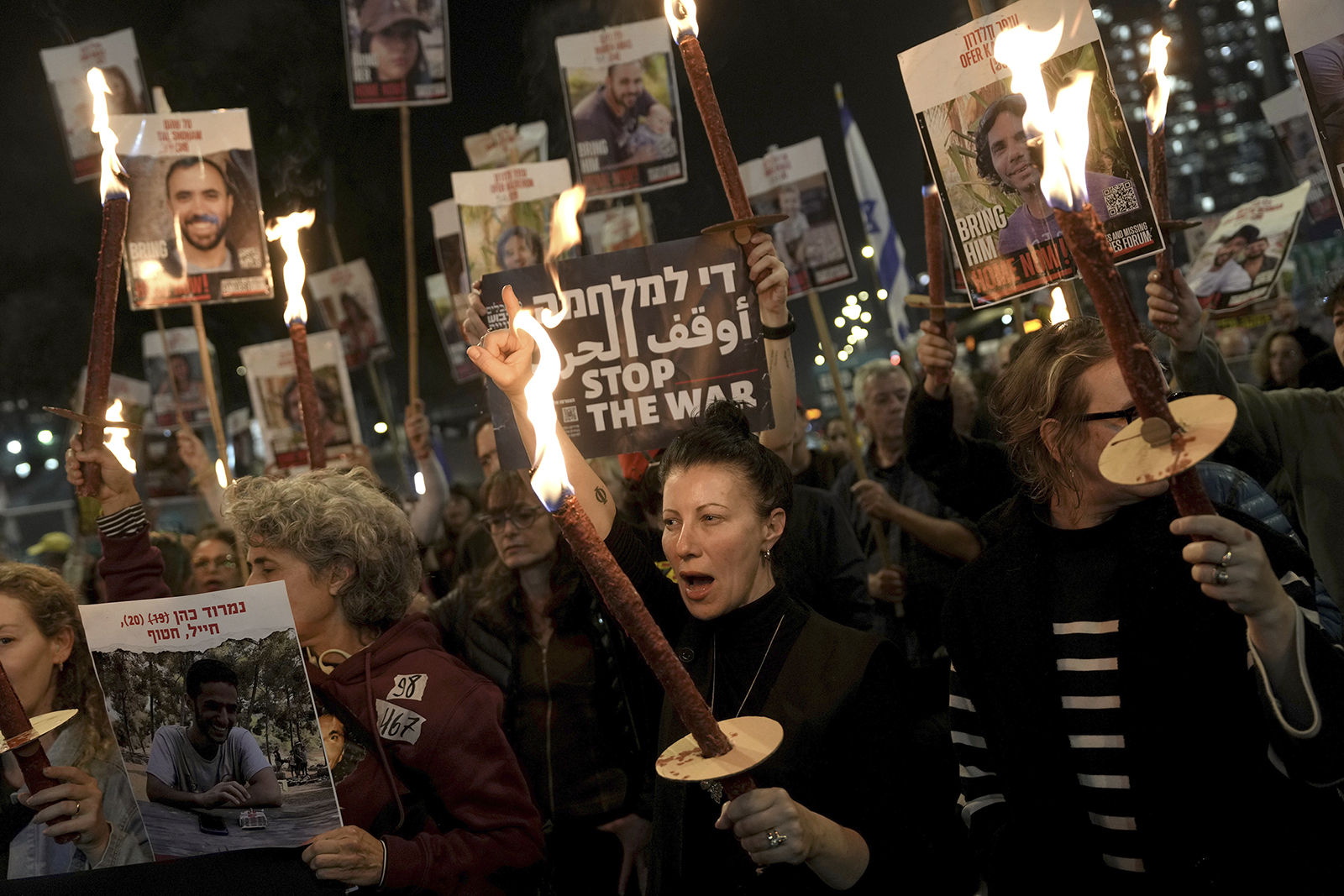
JERUSALEM (RNS) — War-weary Israelis feel deeply ambivalent over the proposed ceasefire agreement. The deal — which the Israeli Cabinet had not yet approved by press time — calls for a ceasefire between Israel and Hamas and the gradual release of all 98 hostages held captive by Hamas in exchange for hundreds of Palestinians held in Israeli prisons.
While the majority of Israelis want to see the hostages freed in return for a sustained peace with Hamas, few in Israel are openly celebrating. Rumors that no more than half of the remaining hostages are alive, and the fact that Hamas has refused to reveal who is alive and who is dead, have cast a pall over the country.
Many also fear that releasing hundreds of Palestinian prisoners as part of the ceasefire could lead to future attacks — pointing to the example of former prisoner Yahya Sinwar, who headed Hamas and masterminded the Oct. 7, 2023, Hamas massacre that triggered the 15-month Israel-Hamas war. Sinwar, who was killed in October 2024, had been held in an Israeli prison for 22 years before being released in a 2006 prisoner exchange.
Hadassah Fidler, a psychotherapist in Jerusalem, said Israelis and everyone who cares about the hostages’ well-being are balancing hope with uncertainty.
“We know that not all the hostages will be coming home now and that the returning hostages will be returning with terrible trauma,” Fidler said, adding that the implications of the deal for Israel are not yet known.
Stephanie Glick, a specialist in educational technology from northern Israel, worries that the three-phased deal will break down at some point, leaving some hostages in perpetual captivity, their fate unknown.

Activists representing families of Israelis killed during the war in Gaza carry mock coffins covered with Israeli flags that are meant to symbolize the price Israel will pay for agreeing to a ceasefire with Hamas in a demonstration against the deal, in Jerusalem on Jan. 16, 2025. (AP Photo/Ohad Zwigenberg)
“It’s a bad situation, a Sophie’s Choice,” said Glick, referring to the William Styron novel about Sophie, a woman interned at Auschwitz who is forced by the Nazis to choose which of her two children to save from death, and which to sacrifice.
Glick said she wants to see the hostages returned but worries about Hamas militants who remain in Gaza and the potential for future violence.
“Do you hold out, keep fighting, hoping to get the hostages back, but risking soldiers’ and hostages’ lives?” she said. “Do you stop fighting and the situation goes back to the status quo and in four years we fight again? Or do you say, when you save one hostage’s life, you save the world?”
Adele Raemer, who survived the Hamas massacre in her home at Kibbutz Nirim on the Gaza border, said she unequivocally backs a hostage deal, despite the high potential cost.
“I have right-wing friends who feel it’s a terrible deal and a loss for Israel — that all the sacrifices we’ve made were for naught,” she said. “They are taking it hard that Palestinians are celebrating and claiming they won the war. I understand them, but I feel they’re being very defeatist. There is no such thing as total victory.”
Raemer, a retired schoolteacher who has been displaced since Hamas’ attack, said she lost more people on Oct. 7 than she can count. She’s ready for a deal to be made, saying it will bring closure.
“Now we have to lick our wounds and appreciate our achievements and mourn the loss of the soldiers who lost their lives for our safety and freedom,” she said. “If we don’t act now, all the losses are in vain.”
Tal Hartuv, who barely survived a vicious terror attack in 2010, just learned that the two Palestinians who stabbed her 13 times with a machete and broke or displaced 30 of her bones will likely be released as part of the ceasefire deal. The attackers murdered her friend Kristine Luken.
“I was told there is a high chance they will be freed. That’s no surprise when you look at the number of people who will be released,” said Hartuv, who has spent the past 14 years working through her emotional and physical pain in pursuit of inner peace.
The former tour guide turned activist said she is “hurting for all of us, not just for myself.”
“Even though I feel a raging sense of injustice, it doesn’t mean I can’t be genuinely happy for those who benefit from this deal,” she said. “We have always lived with paradox.”
Instead of focusing on things out of her control, Hartuv said, she is trying to find meaning in the ceasefire deal.
Difficult though it is, the ceasefire deal could be “a junction of opportunity” for Israel, Hartuv said, pointing to a saying from the Prophet Isaiah.
“This could be the most incredible ‘light unto the nations’ moment, to show how it is possible for an individual and a nation to walk through this terrible trauma and come out the other side,” Hartuv said. “Hope isn’t just a fluffy word.”
